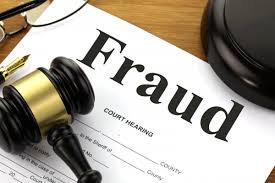DOJ Applies False Claims Act to Tariff and Trade Violations (Part I of III)

Never underestimate the creativity and ability of federal prosecutors to apply federal criminal laws to address “new” crimes or new enforcement programs. Corporate leaders and compliance officials are making a serious mistake when they confuse a “pause” in FCPA enforcement to mean a reduction in federal criminal corporate prosecutions. This Administration has no problem in taking aggressive positions in the legal arena and I would expect them to do so at DOJ when prosecuting national security and trade-related offenses.
DOJ’s pronouncements make it clear — aggressive tariff and trade enforcement is coming. DOJ officials have made it doubly clear that this will happen, along with supporting comments from regulatory agencies responsible for overseeing the complex maze of trade laws and regulations.
In response, companies have to take immediate action and shore up their trade compliance programs, especially those that depend on trade with China and other hot button countries. Those that assume that they will get off with at most a slap on the wrist are in for a serious surprise.
Why do I use this alarmist language?

The current Administration characterizes trade and tariff compliance as a national security issue. From its perspective, the Administration is intent on rebuilding the U.S. economy by protecting U.S. industries from unfair trade practices. This is not a policy issue — this is a crusade to elevate the U.S. economy. Whether it will work or not, we will see, but this Administration is using every lever they can find to increase American manufacturing at the expense of foreign trading partners.
U.S. corporations should be mindful of this new policy dimension and set of expectations. Circumvention of tariffs, avoidance of fees and compliance with national security requirements in the trading arena is imperative. Companies do not want to be the poster child for trade abuse or fraud, at the expense of domestic industries and workers.
The Trump Administration is gearing up for the real fight. They are quickly communicating new plans for tariffs and then seeking to “renegotiate” trade terms with global trade partners.

The Justice Department’s new Corporate Enforcement Program is aimed right at trade compliance and corporate trade practices. DOJ’s whistleblower program now includes rewards for tariff, trade and customs fraud or circumvention.
Under the radar, DOJ is now pursuing False Claims Act cases built on trade violation predicates. This development is a logical next step but it carries significant risks and penalties for companies.
The Trump Administration already has emphasized the importance of False Claims Act cases to reinforce government efficiency mandates and to protect taxpayers against fraud. It is not a big leap to extend these initiatives into trade compliance.
By bringing the False Claims Act to a complex set of laws and regulations governing trade, companies that depend on trade will face a new set of significant risks — one where whistleblowers, documentation and aggressive enforcement will require careful mitigation and responses.
In tomorrow’s post, I will review the legal significance and risks associated with False Claims Act enforcement in the trade arena.















